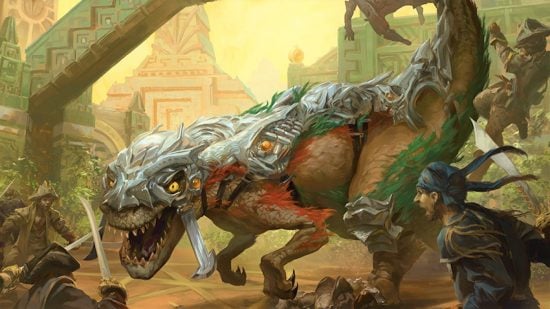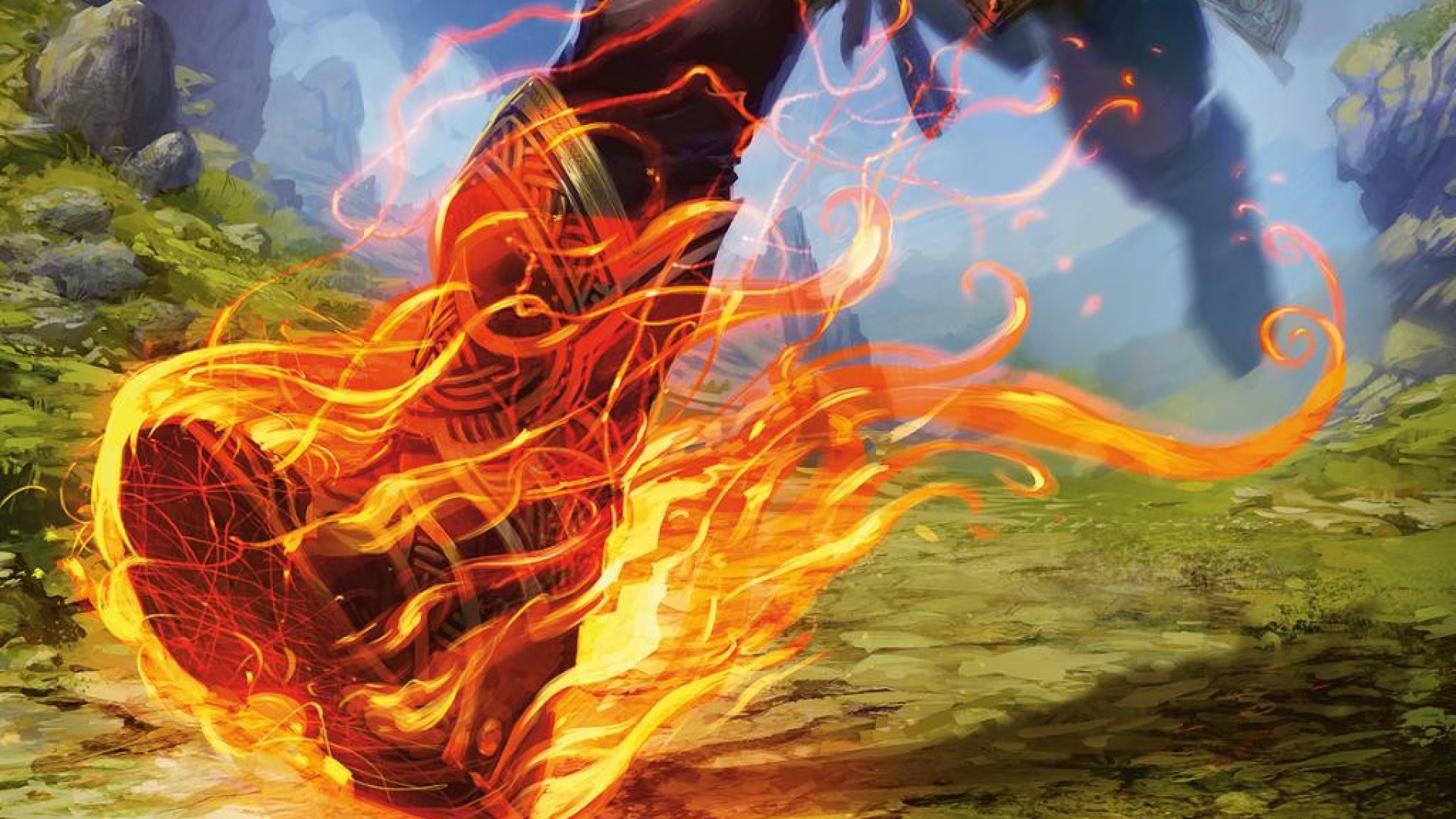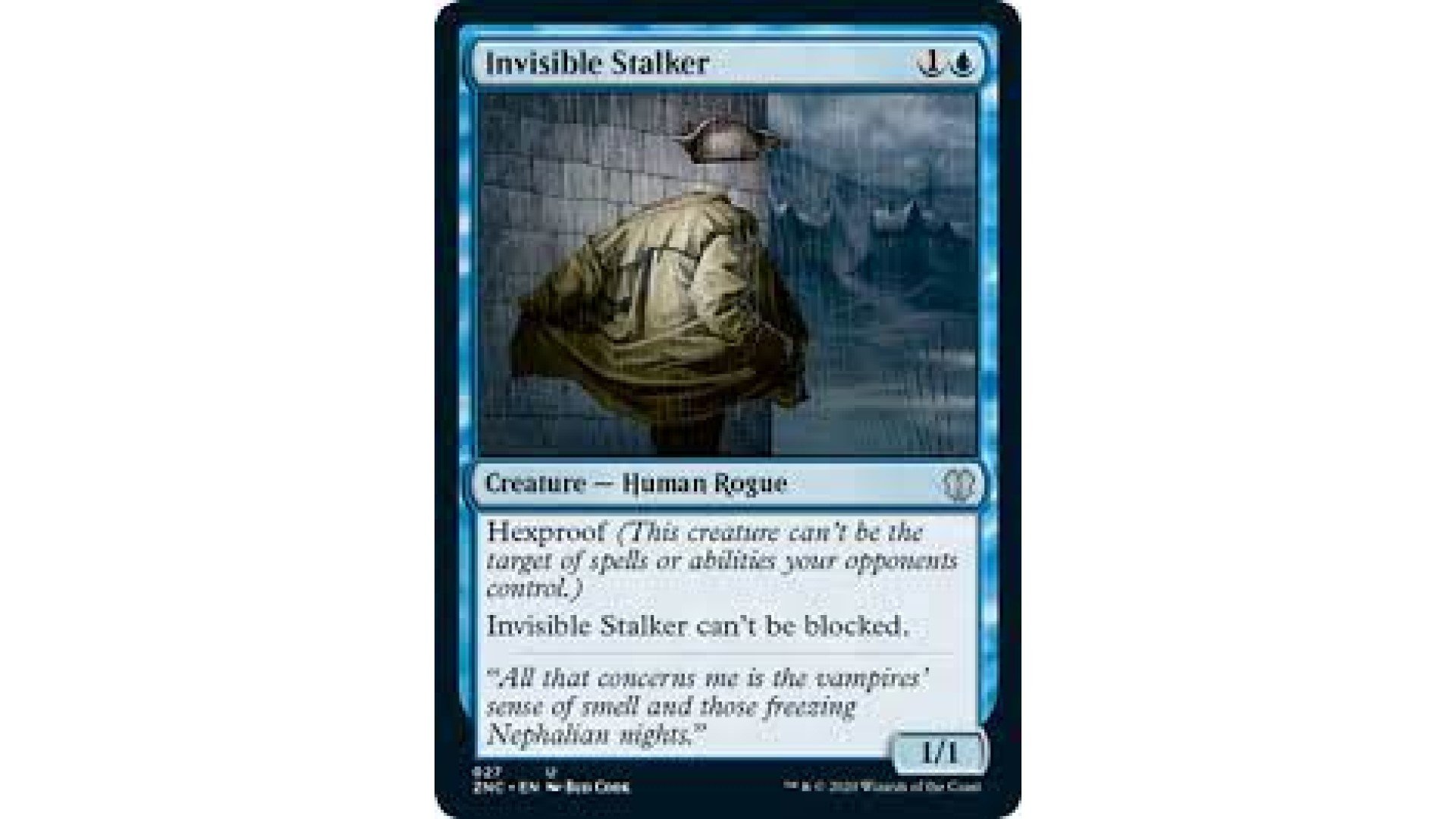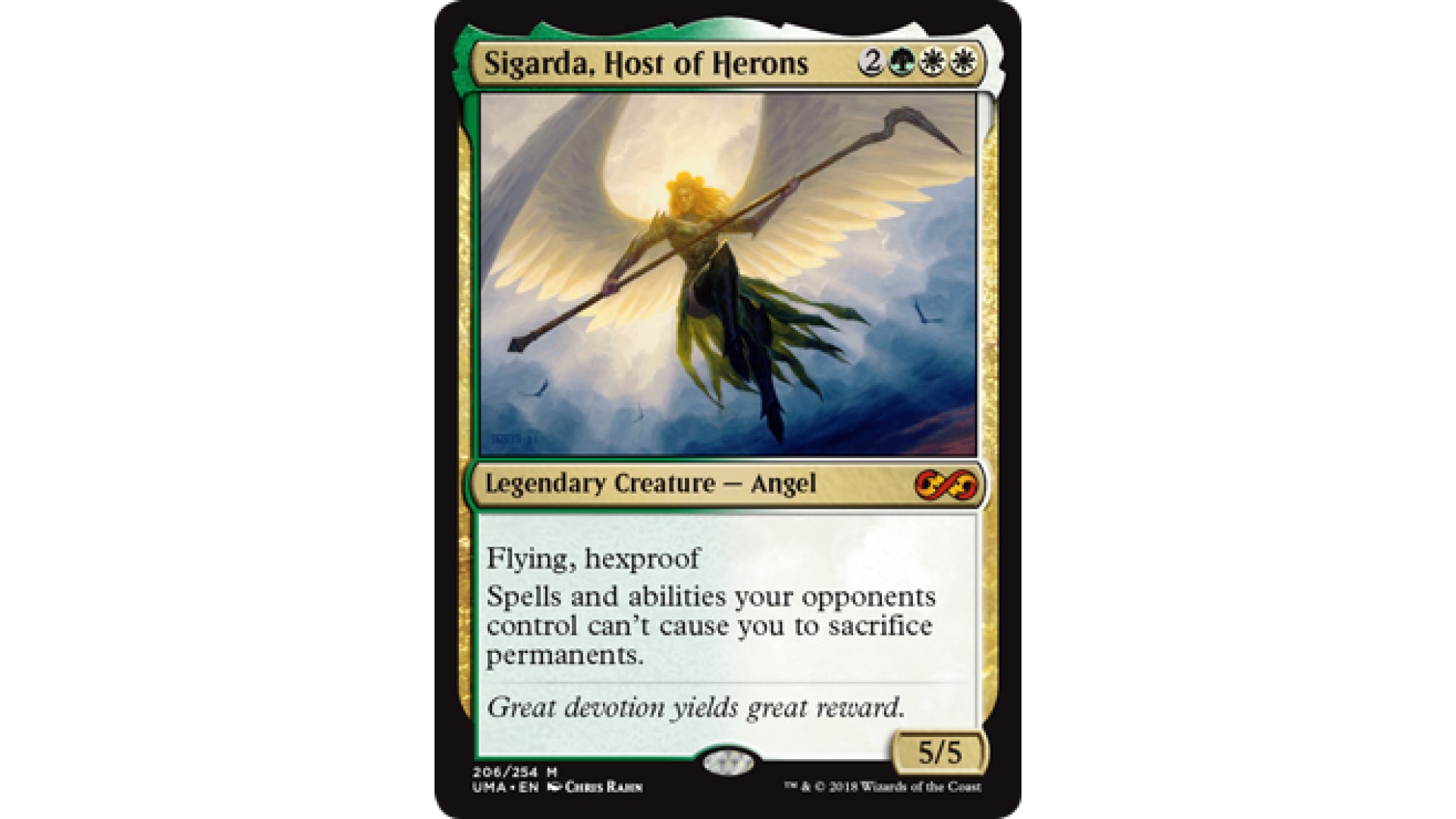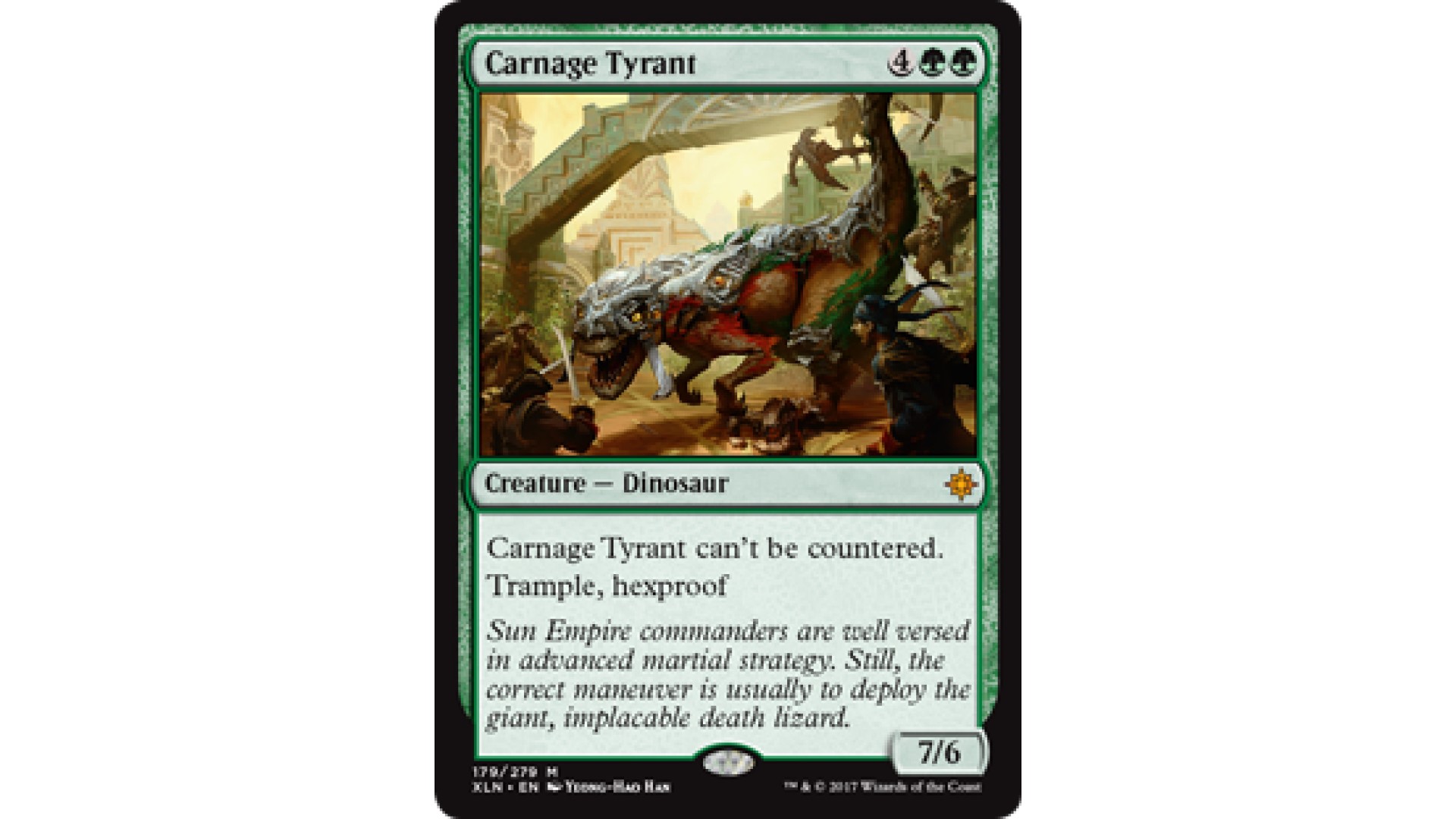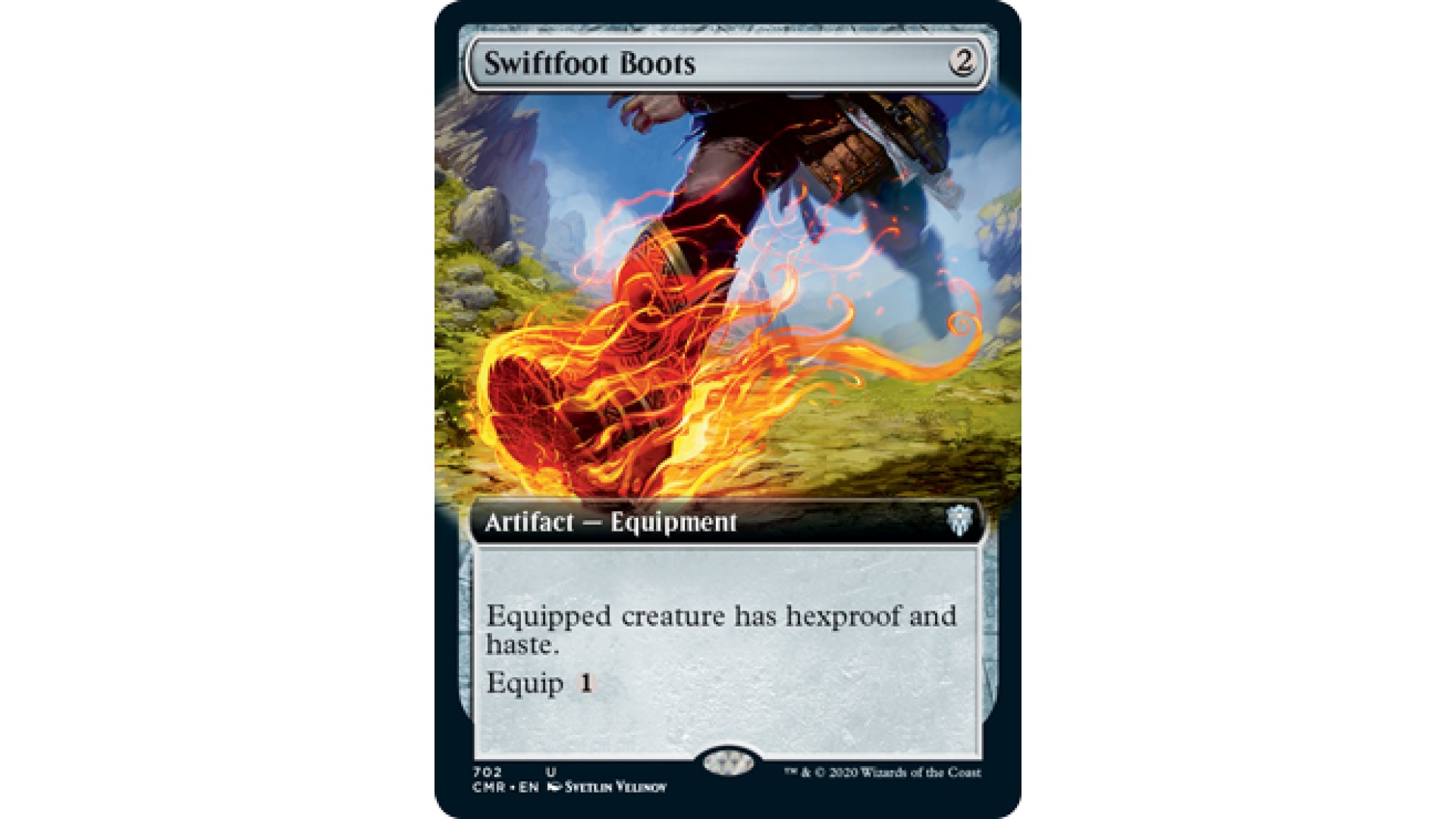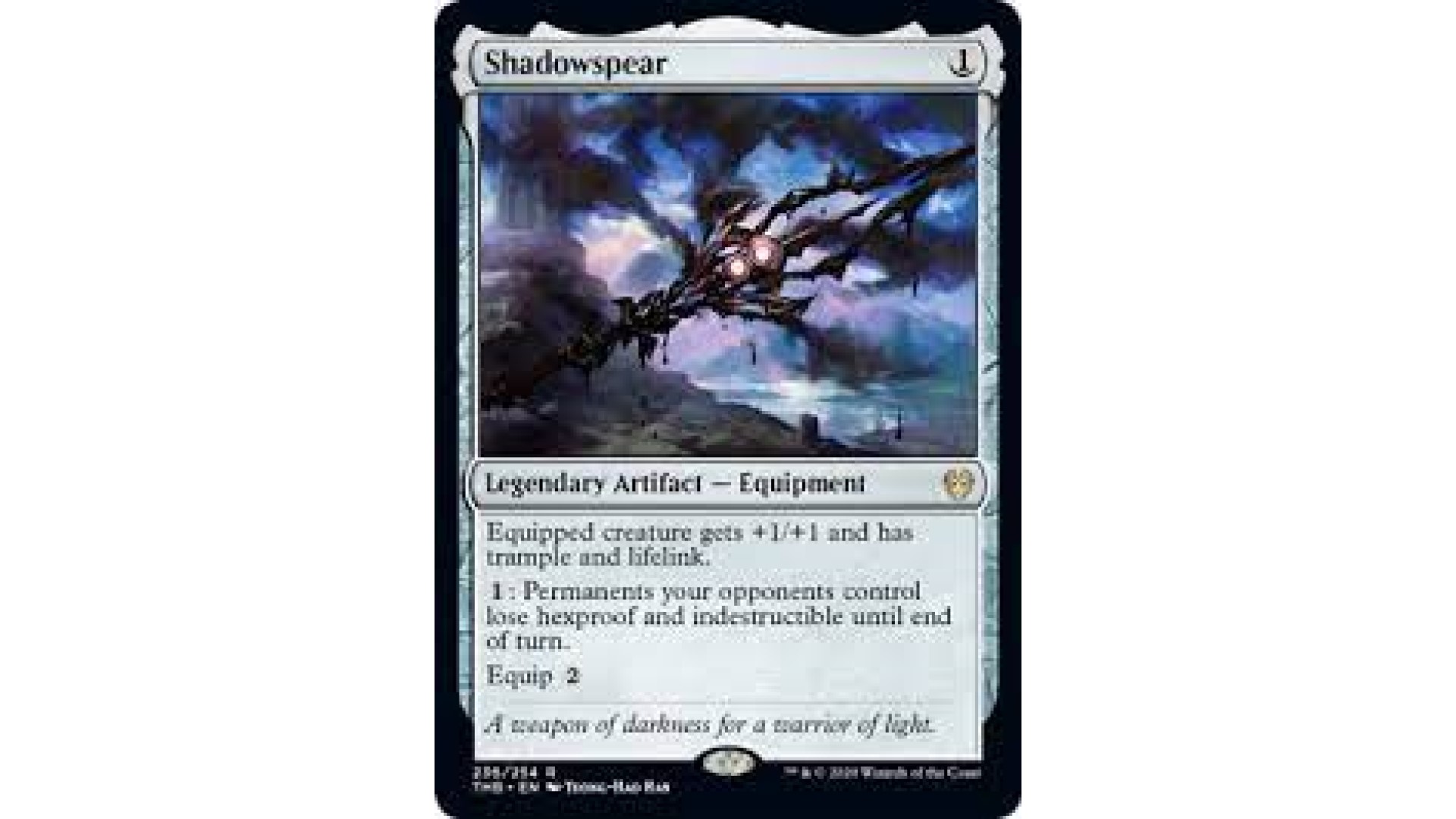Sick of your creatures dying to Doom Blade? You need the Magic: The Gathering Hexproof keyword. Short of a counterspell, MTG Hexproof is the surest defence against whatever foul magics your opponent wishes to send your way.
Making it impossible for your creatures to be targeted by your enemies, the Hexproof keyword provides protection, not just against instants and sorceries that would kill your minions, but against any and all types of interaction. If you want spells to bounce harmlessly off your creatures, read on, and learn all there is to know about MTG Hexproof, from its rules and history to the best creatures with the keyword.
How does MTG Hexproof work?
A creature with the Hexproof keyword cannot be targeted by spells or abilities controlled by an opponent. You can still buff it up yourself however you like, but for your opponents, casting an instant, sorcery, aura enchantment, or using an ability on your Hexproof creatures is strictly prohibited.
This means Hexproof is often a more powerful keyword than the more impressive sounding Indestructible, since the bounce spells of blue and the pacify and exile effects of white and black are all rendered harmless. Suddenly using auras and equipment isn’t such a risky gambit, since it’s almost guaranteed your creatures will be sticking around for some time.
You can even give a creature Hexproof in response to an opponent’s spell or ability and cause it to fizzle!
However, don’t go thinking your Hexproof critters are completely immune from all harm. A hexproof creature can still be blocked and killed in combat as normal. Plus, you’re not resistant to all spells – board wipes and certain sacrifice effects will still lay your creatures low. The key thing to think about when determining whether a Hexproof creature is affected by a spell is whether that spell is targeting it. It’s the difference between destroy all creatures versus destroy target creature. Simple!
Furthermore, Hexproof doesn’t apply to a card while it’s on The Stack. It only applies while it’s a permanent on the battlefield. That means permanents with Hexproof can still be countered.
While it’s mostly found on creatures, any type of permanent can technically be granted the Hexproof keyword – and it works the same way for everything. Players can also gain MTG’s Hexproof ability, becoming immune to all targeting effects.
Finally, some effects grant limited Hexproof. For example a creature might only have Hexproof while it’s untapped. Or you might have an effect that grants Hexproof against a single colour or permanent type. That’s pretty straightforward – a spell that has that colour or an ability that comes from that permanent type can’t target the permanent with conditional Hexproof.
MTG Hexproof history
The effect of MTG’s Hexproof keyword first appeared on a couple of cards in 1999’s Portal Three Kingdoms set. However, it wasn’t given its official name for over a decade, the term ‘Hexproof’ first appearing in the video game Duels of the Planeswalkers 2012.
Wizards says it brought in Hexproof as a replacement for Shroud, which was deemed too confusing and too commonly misunderstood. It soon became an evergreen mechanic.
The MTG set Ikoria introduced Hexproof counters (along with counters for Deathtouch, Lifelink, and a whole bunch of other keywords) which can be placed on permanents to give them Hexproof.
MTG Hexproof is such a powerful keyword that it’s slowly fallen out of favour with Magic’s designers. In 2015, R&D admitted there were problems with its power level. In modern-day Magic, Wizards has largely favoured conditional forms of Hexproof, experimenting with new ways to use the ability. In 2021, this led to the creation of the Ward mechanic which is now extremely common, showing up in pretty much every set.
MTG Hexproof, Shroud, Protection, and Ward
One of the confusing things about the Hexproof keyword is that there are a few different abilities that are similar to it. Here we’ll go over the key differences.
Shroud
An older version of Hexproof that’s no longer used, Shroud is basically two-sided Hexproof. Creatures with Shroud can’t be targeted by spells or abilities controlled by any players, not just by your opponents.
Protection
Protection (from X) is a lot like conditional Hexproof. A creature with Protection from a quality, let’s say a colour for simplicity, can’t be targeted by spells and abilities of that colour (like Shroud, that’s regardless of who controls them). However, Protection grants several additional effects. A creature with Protection from a colour can’t be blocked by creatures of that colour, or damaged by sources of that colour.
It can’t be enchanted by or equipped with cards of that colour either, and if a creature already has an equipment or enchantment on it, and then gets protection from their colour or type, that equipment or enchantment will fall off.
Ward
One of the newest MTG keywords, a creature with Ward can still be targeted by an opponent’s spells. However, unless your opponents pay the Ward cost for each spell targeting your Ward creature, those spells will be countered. In a sense, then, it’s a form of limited Hexproof.
Best MTG Hexproof cards
Invisible Stalker
A Hexproof creature that can’t be blocked has the potential to be an absolute nightmare for your opponents. After this guy was printed, Wizards realised they couldn’t put Hexproof on evasive creatures anymore. It just makes things too easy.
Sigarda, Host of Herons
Forcing you to sacrifice your Hexproof creature is one of the main forms of defence your opponents have. Sigarda removes one of their already limited options – plus, she’s a massive flying beater.
Carnage Tyrant
The card for green players who are sick of facing control decks, Carnage Tyrant is a big ol’ dinosaur who takes no prisoners, and shrugs off counterspells and removal alike.
Swiftfoot Boots
A wonder in Commander decks everywhere, these boots were made for protecting your valuable commander, or any other expensive creature you pop down on the battlefield.
Shadowspear
Finishing up with perhaps the best answer to Hexproof cards (other than a boardwipe). For just one mana, Shadowspear will strip all your opponent’s permanents of both Hexproof and Indestructible keywords, leaving them wide open to your spells.
